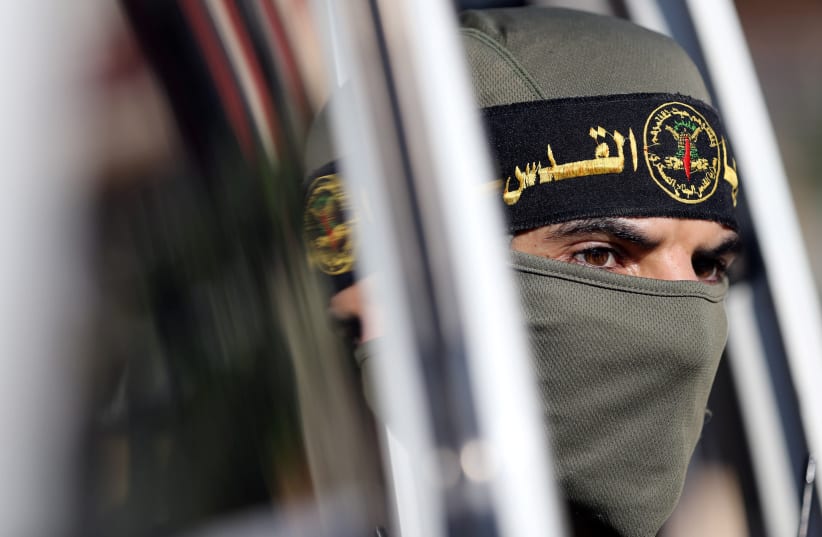The Iranian-backed Palestinian Islamic Jihad (PIJ) organization announced at the weekend that it will boycott the upcoming Palestinian parliamentary election because the vote is being held under the umbrella of the Oslo Accords.
PIJ, which has boycotted all previous Palestinian presidential and parliamentary elections, is the second largest terror group in the Gaza Strip after Hamas.
Both PIJ and Hamas reject the Oslo Accords signed between the Palestinian Liberation Organization and Israel and call for replacing Israel with an Islamic Palestinian state.
In 1996, Hamas boycotted the first Palestinian general elections, also on the pretext that they were being held as part of the Oslo Accords.
Ten years later, however, Hamas participated in the election for parliament, the Palestinian Legislative Council (PLC), though it did not change its position regarding the Oslo Accords.
Hamas has announced that it will participate in the election for the PLC on May 22 and the PLO’s Palestinian National Council (PNC) on August 31. The presidential election is scheduled to take place on July 31.
Palestinian sources said that PIJ’s decision to boycott the parliamentary election, which did not come as a surprise, was taken in coordination with Iran.
The sources pointed out that leaders of PIJ recently met in Moscow with the Iranian ambassador to Russia and discussed with him Palestinian Authority President Mahmoud Abbas’s decision to hold general elections.
The decision to boycott the election was announced shortly after PIJ leaders attended a meeting of Palestinian factions in Egypt to discuss preparations for the vote.
A statement issued by the factions after the two-day meeting said that they all agreed on “mechanisms” for holding the elections. The talks in Cairo were held under the auspices of Egypt’s General Intelligence Service.
Sheikh Nafeth Azzam, member of the PIJ political bureau, said that his organization decided to boycott the election, because they will be “part of the current political system.” PIJ won’t be participating in the election because it rejected the Oslo Accords, he added.
Azzam revealed that PIJ and other factions that participated in the Cairo talks were “unhappy” with the outcome.
Despite the decision to boycott the election, PIJ will not obstruct the electoral process, he stressed.
Explaining its decision to boycott the vote, PIJ said it believes that “the correct approach to national unity is to agree on a political program that strengthens the steadfastness of the Palestinian people and protects its resistance.”
PIJ expressed hope that the election for the PNC (the PLO’s legislative body) would pave the way for the “reconstruction” of the PLO.
Unlike Abbas’s Fatah, PIJ and Hamas are not members of the PLO.
The Palestinian factions are expected to hold another meeting in Cairo next month to discuss preparations for the PNC election.
Established in 1964, the PNC is often described as the Palestinian parliament-in-exile because it represents Palestinians inside and outside the West Bank and Gaza Strip.
Meanwhile, Fatah leaders were scheduled to hold a meeting in Ramallah late Saturday to discuss the latest developments concerning the elections. Fatah’s leaders were set to discuss the internal situation of the faction and the mechanism for choosing its candidates, said Fatah Central Committee Secretary-General Jibril Rajoub.
Rajoub, who headed the Fatah delegation to the Cairo talks, said that the Palestinian factions agreed on a “political map” for holding the elections.
Rajoub said the parliamentary election would be followed by the formation of a new Palestinian government whose main task would be to heal the rift between the West Bank and Gaza Strip.
